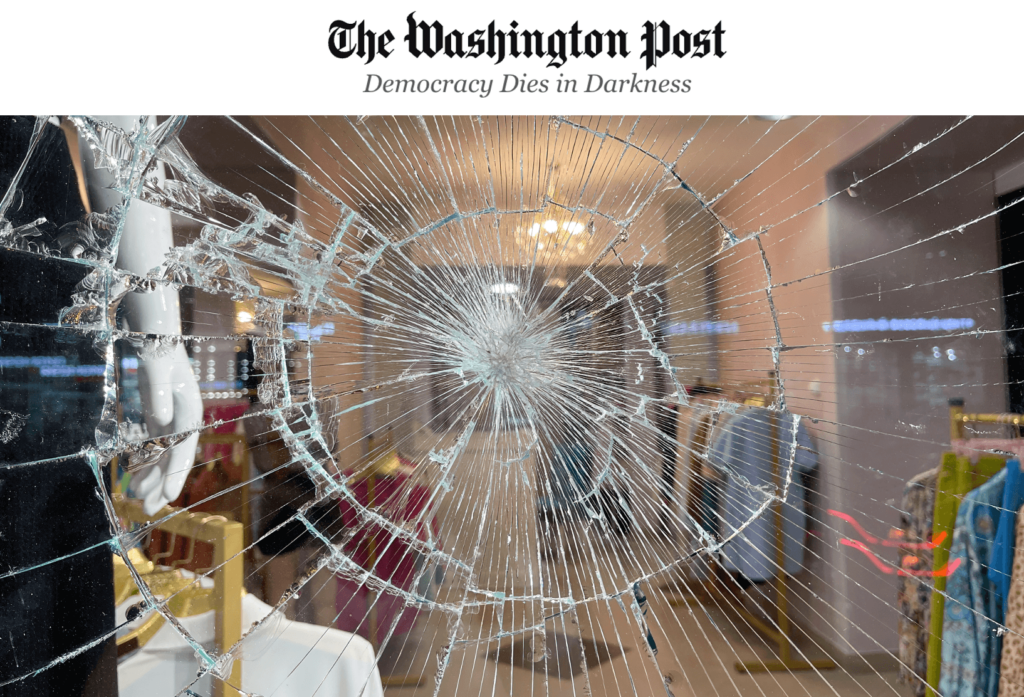By the Washington Post Editorial Board
If there’s any truth to the saying that the future happens first in California, then the potential passage of a ballot measure this fall could portend a tough but humane course correction in the nation’s approach to public safety.
Ten years ago, California voters concerned about mass incarceration passed a ballot measure aimed at reducing the prison population by changing penalties for various offenses. Proposition 47 increased the felony theft standard to $950 in stolen goods, rolled back enhanced penalties for repeat offenders, and turned possession of heroin, fentanyl and methamphetamine into a minor misdemeanor. The measure did contribute to a sharp decline in the state’s prison population — but it has also been blamed, plausibly, for a wave of public opioid use and overdose deaths, as well as smash-and-grab robberies by organized gangs.
This year, voters have a chance to course-correct via Proposition 36, which would undo the worst aspects of 2014’s Proposition 47. The most essential change would enhance accountability for certain repeat offenders. For example, someone could be charged with a felony for stealing goods worth less than $950 if they have two prior theft convictions, which could include burglary, carjacking or even shoplifting. It would also allow felony charges for repeat shoplifting offenders if the combined value of multiple thefts exceeded $950.
Another provision would create a new treatment-focused court process for repeat drug offenders. It would allow people who possess illegal hard drugs to be charged with a treatment-mandated felony instead of a misdemeanor if they have two or more past convictions for possessing or selling narcotics. If convicted, they would be offered mental health or drug treatment. If they complete that treatment, the charges would be dismissed. If they do not, they would serve up to three years in state prison. This gives judges and prosecutors useful leverage to push people into treatment who might otherwise resist. Proposition 47 had weakened those incentives.
Proposition 36 would help combat the fentanyl crisis in other ways. Anyone convicted of selling or providing illegal drugs would be warned that they can be charged with murder if they sell those substances again and one of their users dies. Sentences for selling fentanyl, heroin, cocaine and methamphetamine could be lengthened based on the quantity sold. This is a sensible adjustment that would allow courts to tailor sentences, distinguishing between small-time corner pushers and big-time smugglers from Mexico or China. Under current California law, fentanyl dealers face less jeopardy if they’re caught with a gun than those selling PCP, heroin, methamphetamine or cocaine with a gun. Closing that loophole is a no-brainer.
As for organized retail theft, it’s essential to go after the kingpins who are orchestrating large-scale shoplifting operations. Right now, there’s no additional time added to felony sentences for stealing more than $50,000 worth of property. Proposition 36 would give judges the discretion to add an extra year if someone takes more than that, two years if they steal more than $200,000, three years for more than $1 million — and an extra four years for $3 million in theft.
Unsurprisingly, the biggest funders of the Proposition 36 campaign are major retailers, such as Walmart, Target and Home Depot. They might have the most to gain from a shoplifting crackdown in absolute terms, but it’s also true that low-margin mom-and-pop retailers and franchisees are the ones campaigning the hardest for the law.
Opponents of the measure argue that it would re-create an unjust past in which young people risked hard time for taking candy bars without paying. These concerns are overblown; the measure mainly targets adult repeat offenders. Judges will still have discretion to consider the severity of the crime and other factors specific to each defendant. The nonpartisan state Legislative Analyst’s Office forecasts the ballot measure would increase California’s current prison population of 90,000 by only a few thousand. It’s a sign of both the measure’s popularity and the weakness of the arguments against it that the most prominent opponent, Gov. Gavin Newsom (D), has stopped actively campaigning to vote it down, claiming that he has limited “bandwidth.”
The coalition backing Proposition 36 includes the Democratic mayors of San Francisco, San Jose and San Diego, as well as many Democratic state legislators. Former Democratic congresswoman Jackie Speier supported Proposition 47 in 2014 but now backs Proposition 36; she says it is aimed not at those who take the odd bottle of nail polish but at thieves who sweep up “shelves of makeup that are resold online or at flea markets.” That’s being smart — not draconian — on crime.

